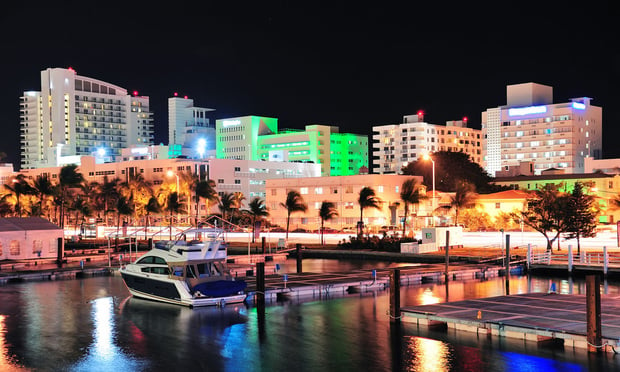The partners in the joint venture also said that the 722-room midtown Manhattan property, located at the corner of Lexington Avenue and 51st Street, will immediately undergo a dramatic aesthetic transformation designed to maintain the hotel's prominence among choices for visitors to New York. The Metropolitan's guest rooms, lobby and other public areas will all be refurbished to reflect stylish, contemporary themes. The Metropolitan, designed by architect Morris Lapidus and opened in 1961, has art deco, post-modern architectural features, a curving facade and colorful exterior. The hotel has 12,000 sf of meeting space and concierge floors with private lounge, a fully equipped health club, gift shop, beauty salon, Lexy Lounge and the Lexington Avenue Grill restaurant and bar.
In a statement, officials from Loews Hotels say, "When the hotel opened 42 years ago as the Summit, it was the first new hotel to be built in Manhattan in 30 years. It is of course sad to say good-bye to this property and the wonderful people who work there, but in keeping with Loews Hotels portfolio and growth strategy, we continue to focus on four and five star, one-of-a-kind, luxury hotels."
"We believe that this transaction provides our partnership the exciting opportunity to re-position the asset and capitalize on the resurgence of the New York hospitality market," says David H. Snell, VP, Highgate Holdings.
"Oxford Capital and its sister company, Oxford Lodging, view the Metropolitan acquisition as an intriguing 'spot market' macro repositioning opportunity in an attractive location in midtown Manhattan," adds John W. Rutledge, the Oxford Capital Cos.
In mid 1999, the same players purchased the 700-room Hotel Lexington fromTAJ Hotels for a reported $117 million or $167,000 per room.
The Metropolitan will face some increasing competition. According to PricewaterhouseCoopers Hospitality & Leisure Practice, by year-end 2005, 14 hotels with a total of 2,338 rooms are scheduled to be added to Manhattan's current 214 hotels and 63,600 rooms. Five of the new hotels will be limited-service, nationally branded properties.
"Continued interest in building hotels in Manhattan reflects the optimism of market participants and the sustained faith in the New York City economy," said Sean Hennessey, director, PWC's Hospitality & Leisure Practice.
Still mired in a post-September 11 slump, the nation's lodging industry will not recover until 2004, according to Daniel Lesser, managing director, Cusman and Wakefield's Hospitality and Gaming Group.
"A significant recovery from the downturn that began in early 2001 and became exacerbated by the tragedy of September 11, 2001 is not expected to occur until 2004," Lesser says, adding that despite the uncertain times, the hotel investment market is "relatively strong right now."
"The market is also being helped by low interest rates and the availability of capital," he notes. "Sophisticated hotel investors are bullish over a two to three year time horizon. Historically, operating performance has been very strong following periods of declining new construction. When uncertainty in the world subsides, and the US economy rebounds, the lodging industry is poised for a period of strong performance."
Want to continue reading?
Become a Free ALM Digital Reader.
Once you are an ALM Digital Member, you’ll receive:
- Breaking commercial real estate news and analysis, on-site and via our newsletters and custom alerts
- Educational webcasts, white papers, and ebooks from industry thought leaders
- Critical coverage of the property casualty insurance and financial advisory markets on our other ALM sites, PropertyCasualty360 and ThinkAdvisor
Already have an account? Sign In Now
*May exclude premium content© 2024 ALM Global, LLC, All Rights Reserved. Request academic re-use from www.copyright.com. All other uses, submit a request to [email protected]. For more information visit Asset & Logo Licensing.







